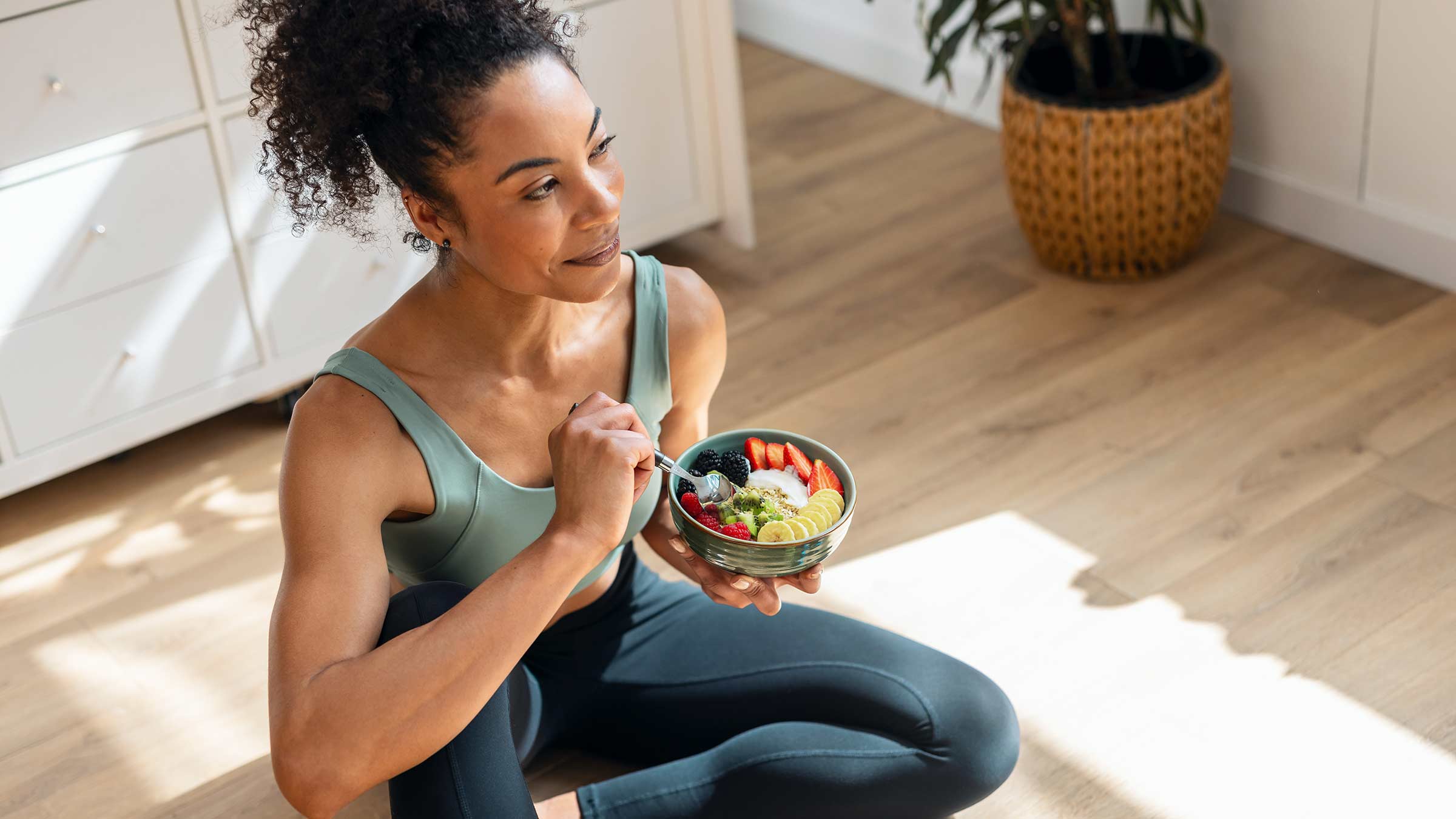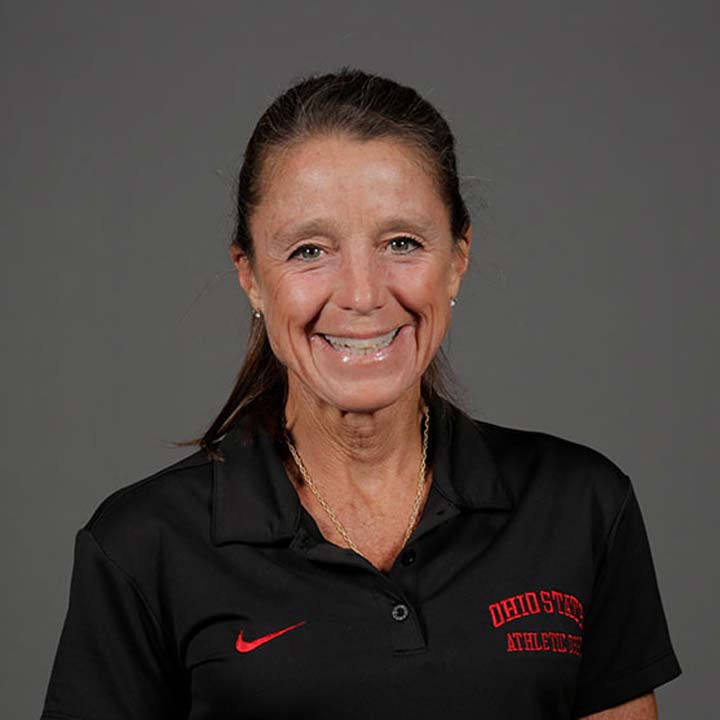How can sports nutrition affect my performance?
There’s a saying that “you can’t outrun a bad diet.” If you’re exercising regularly, you want to ensure you’re fueling yourself well to maximize your performance.
But there’s plenty of conflicting advice about the best way to do that, and even more fads and trends that make it difficult to know what to eat and drink — and when to do it.
Here are answers to some common questions about sports and nutrition:
What are the best foods to eat before a workout?
Typically, three to four hours before a workout, you want a meal that contains carbohydrates, protein and minimal fat. Carbohydrates get digested very quickly. Protein is next, but fat kind of sits in your system and could cause some gastrointestinal distress. The same with fiber.
An example might be a turkey and cheese sandwich on white bread, an orange or a banana, and a glass of milk.
About 30 minutes prior to going into your workout, have some carbohydrates to top off those energy stores. That could be something as simple as crackers.
What should we eat after exercise?
Within 60 minutes we want to have some kind of fuel. The first thing the body wants to do when it’s done with activity is replace its glycogen stores or its energy stores. So, you need to put in some kind of carbohydrate. Some juice works.
We also like to put in some protein, because during your activity you’ve broken down your muscle tissues. So that protein gives us building blocks to build that muscle tissue that you just broke down.
What would be perfect is if you had a small carbohydrate and protein within 30 minutes — maybe an energy bar. Then, about an hour to an hour-and-a-half later, have a really balanced meal just to top off everything and give your body all the nutrients that it needs.
How does nutrient timing differ for various types of exercise?
The nutrient timing doesn't change a whole lot. However, some of the nutrients that you take in may change. Your protein may be increased a little bit throughout the day if you’re in a power sport as compared to a runner who might need more glycogen or carbohydrates to make sure they can get through a longer run.
Are there certain foods or nutrients that can help reduce muscle soreness?
When we when we work out intensely, our body has inflammation. And that inflammation can cause what we call free radicals. But then we end our workout, and those free radicals can oxidize the cells or damage the cells.
Our recovery fuel is going to be carbohydrates and protein, no matter what, to replace what we just used up. But it can also include some antioxidant foods — anything that has omega 3s (seeds and nuts, for example) and some anti-inflammatories (berries, spinach).
Anti-inflammatory foods are really helpful to prevent that high inflammation that happens whenever we work out, which then causes damage to the cells.
How much protein is needed daily?
The macronutrient protein is one that gets talked about a lot. And typically the average person needs about 0.8 grams per kilogram of body weight — somewhere between 70 and 90 grams of protein per day.
The body can only really absorb so much protein at one time. So, the secret is really to spread your protein throughout the day. Sometimes we’re often so busy, we put all our protein in our evening meal and think, oh, I got all my protein in.
If you can get 20 to 40 grams of protein at each one of your meals and snacks, you’re going to get the protein that you need in the day.
What are the best sources of protein for vegans and vegetarians?
Good protein choices for athletes that are vegetarians or vegans include soy proteins like tofu and tempeh. Seeds and nuts are also great choices.
Whole grains are also a great source of protein, as long as they keep their fiber in them. One of the things that dietitians often think about when we’re working with a vegetarian or vegan is complementing their protein. If they have a bean or a legume with a grain, that’s a great way to make sure that they’re getting all the essential amino acids throughout the day.
What is carbohydrate loading?
If an athlete is in an event that involves constant movement for longer than 90 minutes, like a half marathon, carbohydrate loading might be a real benefit.
About two days out from the event, increase your carbohydrate intake. So maybe you’re taking an extra half a cup of pasta at dinner. The next day, increase it just a little bit more.
The day of the event, have a nice high-carbohydrate meal for about three hours before the event, and more carbohydrates 30 minutes prior to the event.
Carb loading may cause you to gain two to four pounds, because the glycogen may cause you to gain some water weight. But you’re getting lots and lots more energy, so for that endurance event, it’s a benefit.
Which supplements can support your fitness goals?
As a dietitian, I really promote getting all of our nutrients through food. My job is to work with an athlete to make sure that they can get all their nutrients through foods.
One of the things that I want them to look for in the supplement is to make sure that it has been verified that what is on the label is what is inside. The U.S. Food & Drug Administration (FDA) does not regulate supplements.
But there are two logos that you could look for. Logos from the United States Pharmacopeia (USP) and National Sanitation Foundation (NSF) will tell you that what’s on the label is what’s inside.
How can I tell if I’m properly hydrated?
Hydration is key for any athlete, especially on hot and humid days, because the biggest hindrance of performance is dehydration. Everybody has a different sweat rate, so people’s fluid needs are very different.
One of the things that we encourage athletes to do is to check their urine at night. It needs to be clear and transparent. If it’s not, then you’re probably still dehydrated.
What are some signs of dehydration?
Some of the signs of dehydration could be fatigue or cramping. If you get a headache when you’re done working out and it goes away after a couple of hours, that’s typically because you’re hydrating.
If you’re dehydrated, it can disrupt your focus and really affect the whole your performance.

Ohio State Sports Nutrition
Our sports dietitians work with athletes of all levels to develop nutrition plans tailored to their individual needs.
Schedule an appointment








